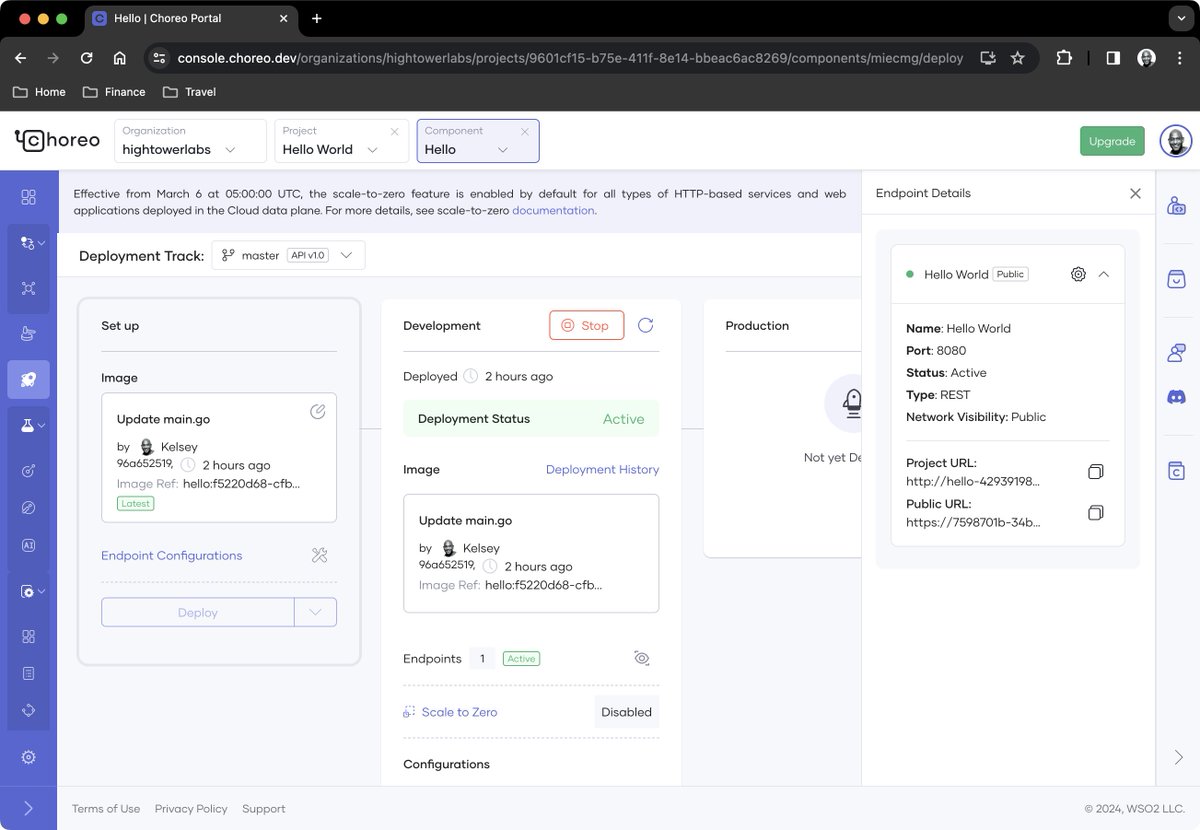
Minimalist
DMs are now closed. Just email me: kelsey.hightower@gmail.com
16 subscribers
How to get URL link on X (Twitter) App


 Choreo integrates API testing, CI/CD, and just enough observability to get pretty far without adding any other tools. The best part is the consolidation of all these concepts behind a common UI.
Choreo integrates API testing, CI/CD, and just enough observability to get pretty far without adding any other tools. The best part is the consolidation of all these concepts behind a common UI. 
https://twitter.com/petecheslock/status/1671536499748118532Containers were about adopting a new abstraction and decoupling your application from the machine. Bundle your application and dependencies so you can spend less time messing with OS and configuration management tools. Docker and Kubernetes are optional.

 This isn't a dig against Lambda as that platform helped the team build the service fast and get to market.
This isn't a dig against Lambda as that platform helped the team build the service fast and get to market. https://twitter.com/thesobercoder/status/1624078573979197440First, the fundamentals. Kubernetes will schedule a database just like any other application. If you use a deployment, Kubernetes will schedule your database on a random node in the cluster, and if you add a volume, Kubernetes will mount it. That's it. The rest in on you.

 If the AT protocol takes off, you'll end up with multiple services that look and feel like Twitter, but behind the scenes are pulling the same content from multiple sources -- where content creators choose to host it.
If the AT protocol takes off, you'll end up with multiple services that look and feel like Twitter, but behind the scenes are pulling the same content from multiple sources -- where content creators choose to host it.


https://twitter.com/kelseyhightower/status/1553021339945996288While data stored in git is portable across hosted platforms, the data created on those platforms, such as stars on a GitHub repo, is not.

 The goal is to replicate the anonymity and privacy respecting features of physical cash and enable universal access and usability.
The goal is to replicate the anonymity and privacy respecting features of physical cash and enable universal access and usability.
https://twitter.com/mhluongo/status/1473308812991946757
 Wikipedia, the centralized free encyclopedia service created by a decentralized set of users from all walks of life. wikipedia.org
Wikipedia, the centralized free encyclopedia service created by a decentralized set of users from all walks of life. wikipedia.org 
https://twitter.com/codeFreedomRitr/status/1465041948675297293The hard part is avoiding FOMO and blindly following random projects aiming to separate you from your money.

 Either way, it seems like bitcoin, and its ecosystem, is moving towards a more centralized future.
Either way, it seems like bitcoin, and its ecosystem, is moving towards a more centralized future.

 I was legit afraid of dealing with Azure's authentication flow, but the ability to sign in with my @github credentials, I'm off to a great start.
I was legit afraid of dealing with Azure's authentication flow, but the ability to sign in with my @github credentials, I'm off to a great start. 

 So, if I understand this right, once people know your Bitcoin addresses, they can track every transaction? If so, I'm convinced this thing was created by the federal government.
So, if I understand this right, once people know your Bitcoin addresses, they can track every transaction? If so, I'm convinced this thing was created by the federal government.